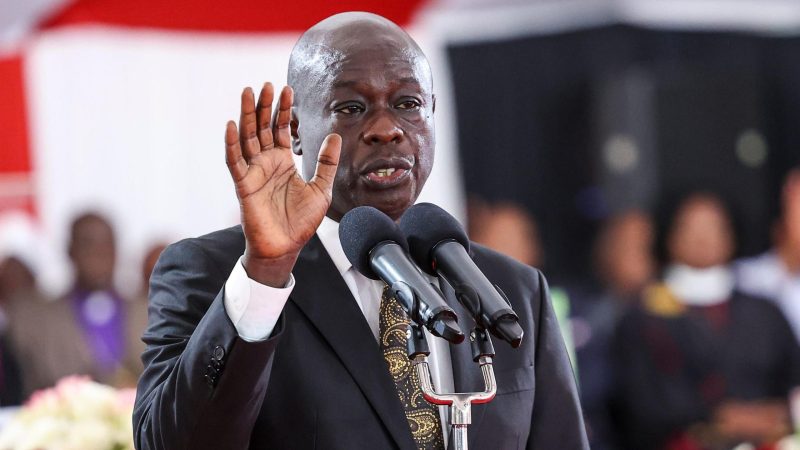This ruling represents a noteworthy milestone in the protracted legal disputes surrounding Sonko, a prominent political figure in Senegal.
According to Senegalese law, Sonko cannot compete in the presidential race while such a conviction is upheld.
“We have just recorded a great victory. The … sentence is upheld, so Ousmane Sonko will not be able to participate in the election,” the plaintiff’s lawyer El Hadji Diouf said on the radio.
Consequently, the decision has triggered renewed conversations pertaining to the delicate balance between freedom of expression and political opposition within the nation.
However Sonko’s legal team said the setback was not final. “The fight will continue,” his lawyer Cire Cledor Ly told reporters outside the court building in the capital Dakar.
Sonko lodged an appeal at the supreme court
Sonko, a former presidential candidate, was found guilty of defaming a high-ranking official in a case that has garnered substantial attention both domestically and internationally.
Following his conviction, he lodged an appeal with the country’s highest judicial authority, the Supreme Court, seeking to overturn the lower court’s verdict.
However, the Senegal Supreme Court, after a thorough examination of the evidence and legal arguments presented by both parties, ultimately upheld the libel conviction.
This decision has further solidified the ruling made by the lower court, confirming Sonko’s culpability for the defamatory statements he made against the senior official.
The rejection of Sonko’s appeal has triggered varied reactions across Senegal. Supporters of the opposition leader argue that the ruling is politically motivated and aimed at silencing dissenting voices.
They assert that Sonko’s case is emblematic of a broader trend of curbing freedom of speech and stifling political opposition in the country. Critics of the government view the conviction as a strategic move to undermine Sonko, who has been a vocal critic of the current administration.
Senegal is praised for it’s democratic values
Conversely, proponents of the court’s decision maintain that it reinforces the principle of accountability and upholds the integrity of the legal system.
They argue that Sonko’s statements crossed the boundaries of acceptable political discourse and that he must bear the consequences of his actions.
They emphasize that the judiciary’s independence was demonstrated by its impartial consideration of the evidence and the subsequent affirmation of the lower court’s ruling.
The case has brought attention to the broader issue of freedom of expression in Senegal. While the country is often praised for its democratic values and respect for human rights, some observers express concerns about recent developments.
They highlight instances where critics of the government have faced legal challenges, potentially creating a chilling effect on public discourse and dissenting opinions.
As the legal proceedings reach a conclusion with the Supreme Court’s decision, the impact of Sonko’s conviction on Senegal’s political landscape remains to be seen.
The ruling has undoubtedly stirred public debate and intensified scrutiny of the delicate balance between freedom of speech and the legal boundaries within the country.
Check also;
- Gabon’s President Ali Bongo Secures Controversial Re-election Victory
- Niger’s President Sworn In for Another Term!
Please use the button below to contribute to Newslex Point, Inc. using a credit card or via PayPal.

 Newslex Point News in Uganda, Uganda news
Newslex Point News in Uganda, Uganda news












